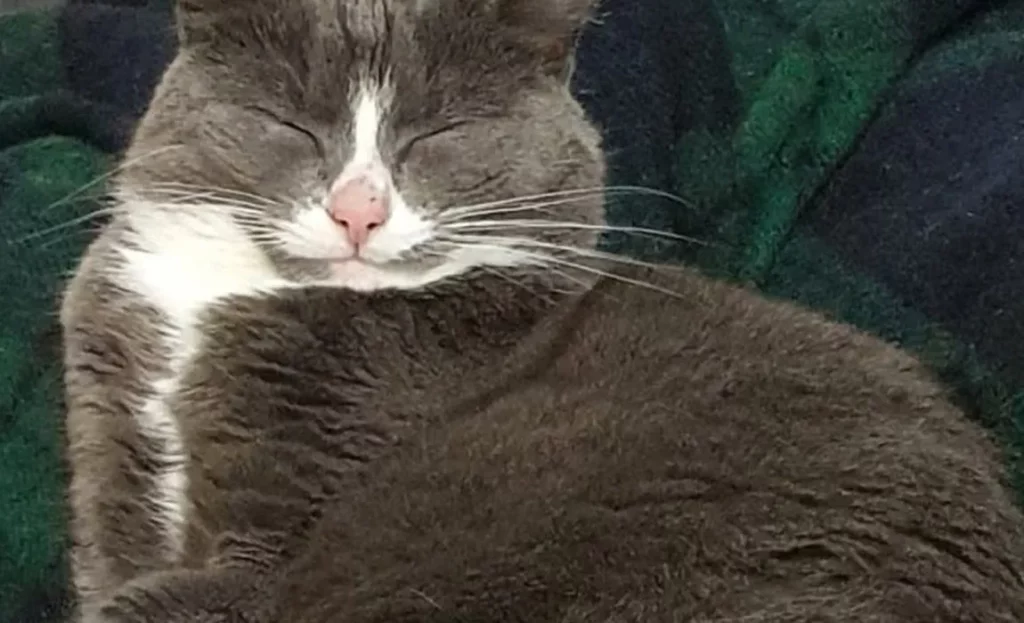Are you feeling confused by your pet’s actions? Discover how to understand and support your pet
If you are feeling like this, it is completely normal. Understanding a pet’s behaviour can be challenging, especially if it is your first pet. I am a behaviour veterinarian who, obviously, is obsessed with animal behaviour, particularly in cats and dogs. I am qualified to assess your pet’s behaviour and help you understand what is going on and how to help manage the problem. Also, I am a mother of two furry cats and more recently of a hairless (human) baby. Being a first-time mum of a human baby has really shed a light on how complicated it is to modify behaviour and manage another individual’s emotions without knowing much before!
When I adopted my cats, I was already knowledgeable on cat behaviour, what they needed, and how to manage or prevent potential problems. Molly is one of those cats that loves everyone and gets along with life with little concerns. However, Myrtle, was hand raised and struggles to stop when she gets angry. I noticed this behaviour when she was about three weeks old. I have done several small things from the beginning to manage it, for example, having short interactions with her, playing the way she likes (hands off toys), giving her a lot of space and always allowing and encourage her to move away and hide if she needed it. After three years with her (yes, that is how long it has taken her and us to find the balance we like), she loves cuddles from me and my partner and even stops and moves away way before getting angry when she finds it conflicting (for example, if I have to check her eyes). Now, she will even come and interact with people she does not know, which is something I never thought it would happen.
Now, how we (people) and animals learn is a universal concept, meaning that we are govern by the same general rules. For example, when something good happens we tend to repeat that behaviour because we want the good feeling again. When there is a punishment, we tend to stop behaving that way because we do not want the pain and stress of the punishment. Yet, it is key to understand these concepts within the nature of the species. I remember studying that in my Master’s Degree, you just need to know what motivates a horse, what scares a rabbit and what interests a snake, to be able to modify behaviour. But I truly experienced this concept when I had my son. I understand how to change behaviour, but I could not figure out why could not do the same with my son. And then it hit me, it was because I did not know anything about baby behaviour, so I could not understand the meaning of most of the behaviours my son was showing. For example, crying was a big trigger for me, and his threshold levels seemed invisible to me. It seemed that he would start crying for no reason. This was so frustrating, heartbreaking and caused a lot of anxiety. I sought professional help and that changed everything. Having someone explain to me baby behaviour (nature of the species) helped me to see what he was trying to tell me, way before the crying started.
Now, I can help him navigate the feeling/sensation. For example, as a baby he would chew his fist when hungry and now he uses sign language to tell me. I have also taught him other coping skills, like how the cot is a/his safe place, now he chooses to go to his bed on his own. Don’t get me wrong, as any parent of a toddler knows, there are new reasons to cry! And new emotions to understand! But by understanding baby behaviour with the support of someone that knows all about them, I can help him.
As a cat or dog parent, you may feel the same way especially if it is your first pet. You may feel frustrated, baffled and stressed by your pet’s behaviour. It may seem uncontrollable, unexplainable, and impossible to resolve. I am here to say that there is an explanation to pretty much all the behaviour problems your pet may be experiencing and there is a solution. It may take time to manage, but once you understand what and how your pet’s behaviour works, it will be much easier to handle.
I have been able to prevent severe aggression from my cat because I understood behaviour and I can help my son better, now that I understand baby behaviour.
Through this series of blog articles, I will explain some behaviour basic in pets that I use to assess and manage cat and dog behaviour problems, hopefully these nuggets about animal behaviour can also help you understand your pet better.
If you are concerned about your pet’s behaviour, please reach out to me at behaviour@londonvetclinic.co.uk or visit our website for further information.
